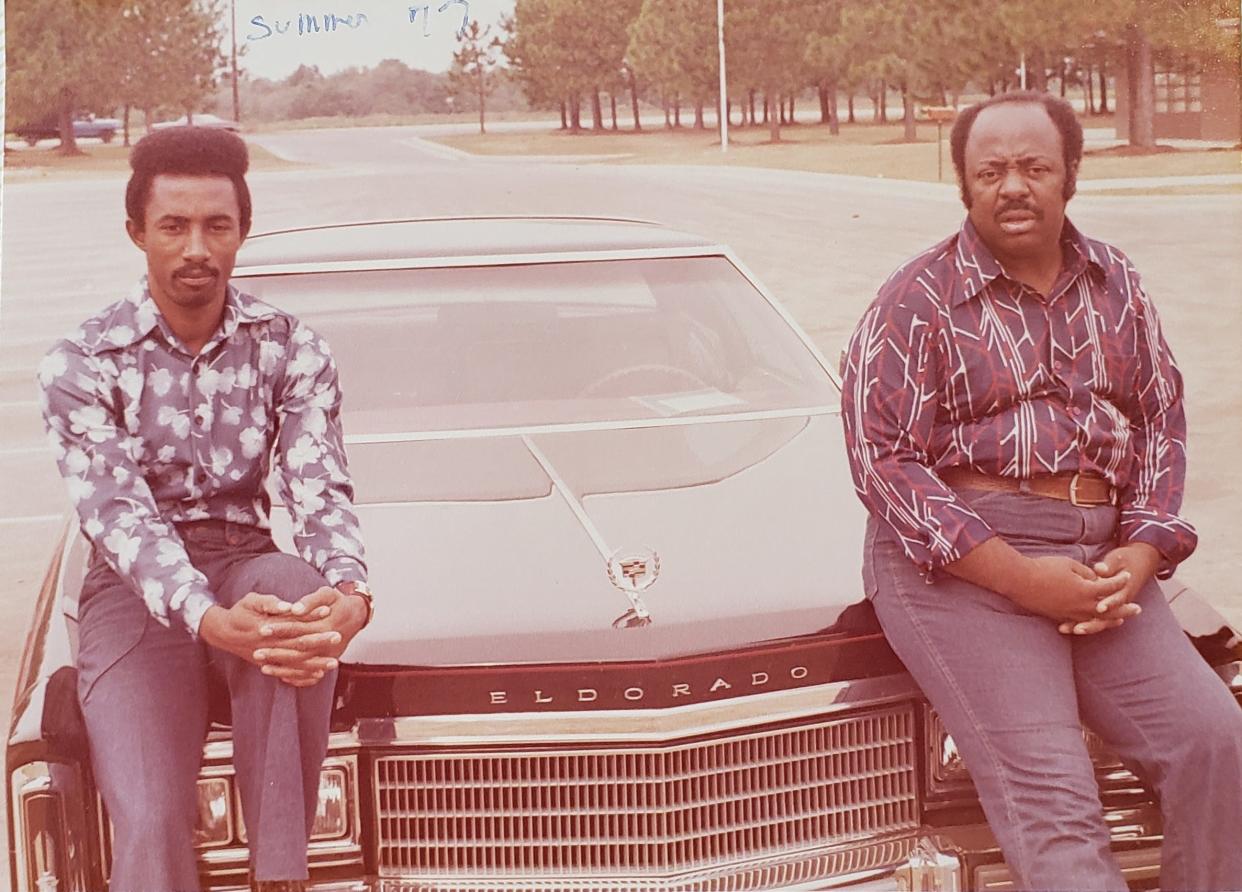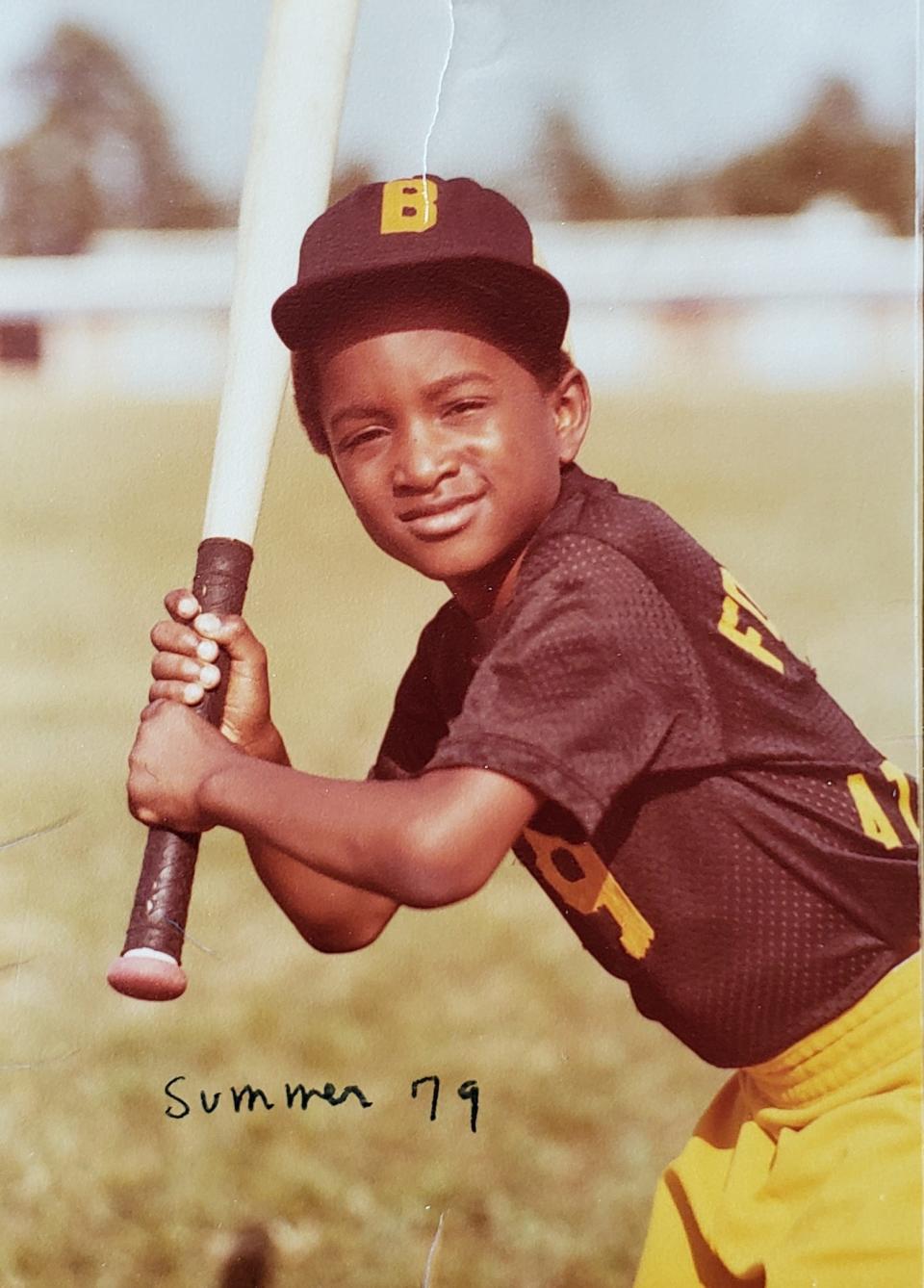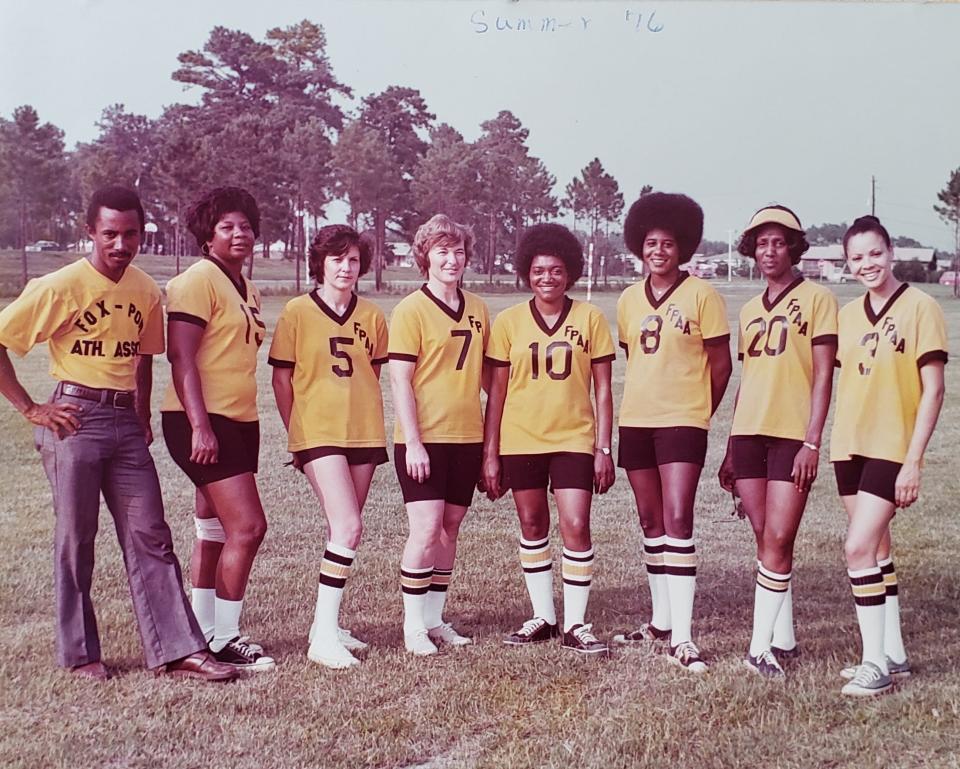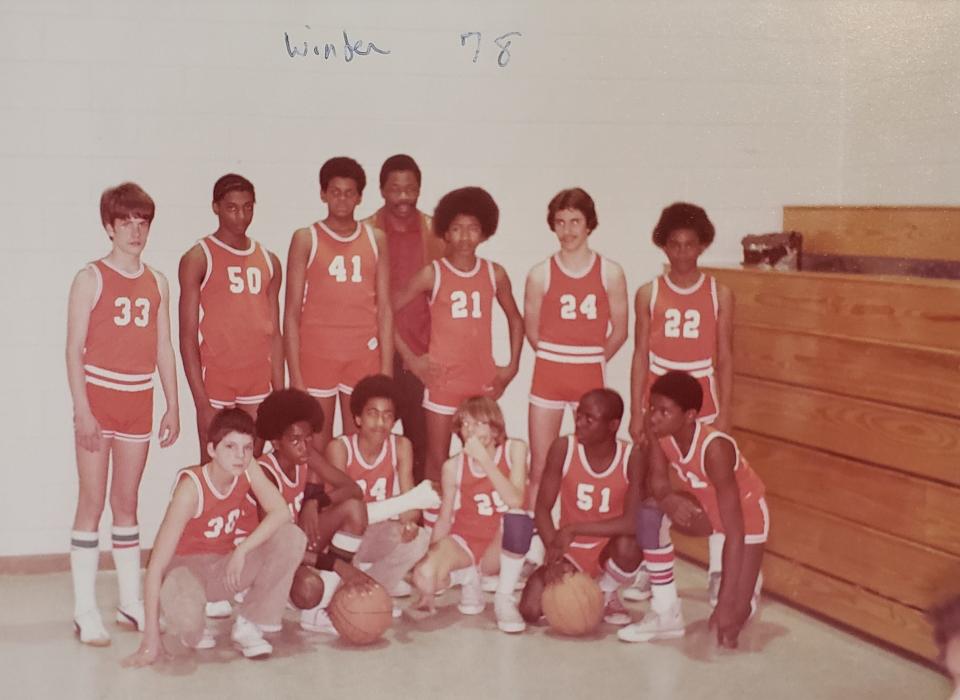Myron B. Pitts: A baseball league, then west of Fayetteville, that was an ode to Black fatherhood

Center field can be a lonely place.
One writer compared playing the position to manning a remote observation post. You see the whole human drama transpiring from afar, waiting for some crisis — say, a line drive — that will demand your lickety-split response.
My youth league coach stuck me out there in the great days of the Foxfire-Ponderosa Athletic Association. I was basically the sort of kid who hoped a fly ball would go somebody else’s way. While I waited for the batter, I tried without success to stop myself from daydreaming about “Star Wars,” or Atari or the dewy sodas waiting for us in the coolers after the game.
‘In Jesus’ name’: Cumberland County elections board stirs fight over prayer policy
I was perfectly mediocre. Myron Pitts’ baseball card is one you bundled with a bunch of other so-so players to trade for a really good player.

I hit exactly two home runs in my six years, and they are two of the greatest things I own. We had no fence at the field in front of Westover High School, so when you hit a homer, you had to really pop it, baby, and run faster than the outfielder chasing your ball. The only other image on my highlight reel is becoming an alternate on the all-star team, after I had grown older and switched to third base.
Pitts: Fayetteville Civil War, Reconstruction center gets new name at groundbreaking
Stats aside, I would not trade my baseball years for anything.
A group of dads, including my own, put the league together in the 1970s and filled it with players and coaches mainly from two majority-black neighborhoods then in west Cumberland County, now part of the city. I remember many times my father was huddled with Matt Welch over athletic association business.
Me and my two older brothers all played years in the league. Our coaches were people like Coach Avery, around the corner from us, or Mr. Green, just down the street.

The league offered baseball, football, basketball and cheerleading and drew hundreds of players, coaches and family members, and helped build a sense of community. At its zenith, Fox-Pon even encompassed adult women’s softball. I distinctly recall the comic situations that arose after my dad became my mom’s coach.
More: Fayetteville council candidates talk crime, 2020 riots, tiny homes and diversity training
My father served as athletic director, but his good friend Coach Banks was the president. Banks was a friendly man but also an imposing figure — when he needed to be.
Just like some sports parents today can get out of hand, they could get disorderly back then, too, even in the mellow 1970s. When my dad was having a time with a parent, he’d call Banks who told him, “Just lay low, lay low” til he got there. Banks handled it.
Looking back at the Fox-Pon association, how it came about, what drove it, I can easily see that fathers like my own were a key component powering the whole operation. Of course, moms served the connective thread in the association just like they did in most families.
So #Juneteenth and #FathersDay is a good time to give “big ups” to Black fathers. We need the good press. My pops is cool as a fan — a true individual. This is him in the 1970s. Everyone was rocking afros, he rocked what we, his 3 sons, called a double-decker. (Begin thread) pic.twitter.com/Yc4A6Trkgz
— Myron B. Pitts (@FOmyronpitts) June 15, 2022
But the athletic association was chock full of Black male role models. Maybe I took that for granted.
The Fox-Pon years have been on my mind as we celebrate both Juneteenth and Father’s Day this weekend.
Juneteenth is a celebration but also bittersweet. It celebrates a people, my ancestors, coming out of a horrible situation no humans ever should have been in.
It is also a reminder that slavery among its many ills was also an assault on the Black family. Fathers and mothers were not allowed their traditional roles.
In many ways, the concept of Black fatherhood remains under assault. We hear all the negatives — too much. You hear about crime, gun violence, absenteeism. You don’t hear enough about people like my pops, now 79, a former biology professor at Fayetteville State University, a businessman, a church deacon, loyal husband and father — beloved “Papa P” to his grandchildren (he even has a Papa P front license plate to prove it).
Fox-Pon reminds me of those fathers, the unsung heroes.
The importance of these leagues in polishing talent for the next level, in sports and in life, cannot be overestimated.
Youth sports, as any coach or player's parent can tell you, is more than sports. The vast majority of kids who play them will go onto work in jobs in something other than athletics. Youth sports is about building character, teaching life skills. Teaching how to master the moment and overcome doubts.
Baseball for example requires players to possess a number of skills that are hard to pick up if not learned early. Natural ability is always a boon but great baseball players must be built. So the ever-fewer number of Black players in high school, college and Major League Baseball should come as no surprise — when you consider the ever-fewer number of sports associations like Fox-Pon.
I get a little ache in my heart to know that so many Black kids will never know the feeling of butterflies when you stand in the batter’s box, and your parents’, friends’ and neighbors’ eyes are all glued to two people — little old you and that dude on the mound.

Many forces conspired to separate Black children from baseball, and you can easily forget life wasn’t always this way. Sometimes the days of Fox-Pon seem to be a dream.
People smarter than me have tried to figure out why so few Black kids show any interest in this wonderful game. Major League Baseball itself recognizes the problem and has programs and funds to encourage more participation by Black youth.
For certain, rappers and pop culture have blessed basketball, and not baseball, with that “cool” factor so important to young folks. Rap and the NBA go hand-in-hand, and throwback NBA jerseys were for a time as much a part of any rappers’ uniform as fancy jewelry.
But it's more than that.
For one, baseball can be an expensive sport to play for many parents, when you factor in bat, balls, glove, uniform, batting helmet etc. I can speak from experience, as we had our two kids playing on teams this year.
(Samuel and Helen Ann, as it happens, played for teams that were both named the Phillies. The other day, I found myself pulling for the Major League Phillies, too.)

In addition to equipment costs to play the game, there has for many years been a general trend in urban planning toward fewer public ball fields and a general lack of investment in urban corridors, especially minority communities. Baseball takes more space than basketball.
It all reminds me that we had something really special in Fox-Pon.
Those Black dads devoted their time, energy and talent to help shape generations of African-American youth.
They were great fathers. They were great men.
Opinion Editor Myron B. Pitts can be reached at mpitts@fayobserver.com or 910-486-3559.
Editor’s note: This column has been adapted and updated from a previous version originally published in The Fayetteville Observer on May 11, 2008.
Huge savings
Subscribe today to support local journalism and enjoy unlimited digital access including videos, apps, sports news, and more. Special introductory offer for new subscribers only.
This article originally appeared on The Fayetteville Observer: Myron B. Pitts: An ode to Black fatherhood through a baseball league

